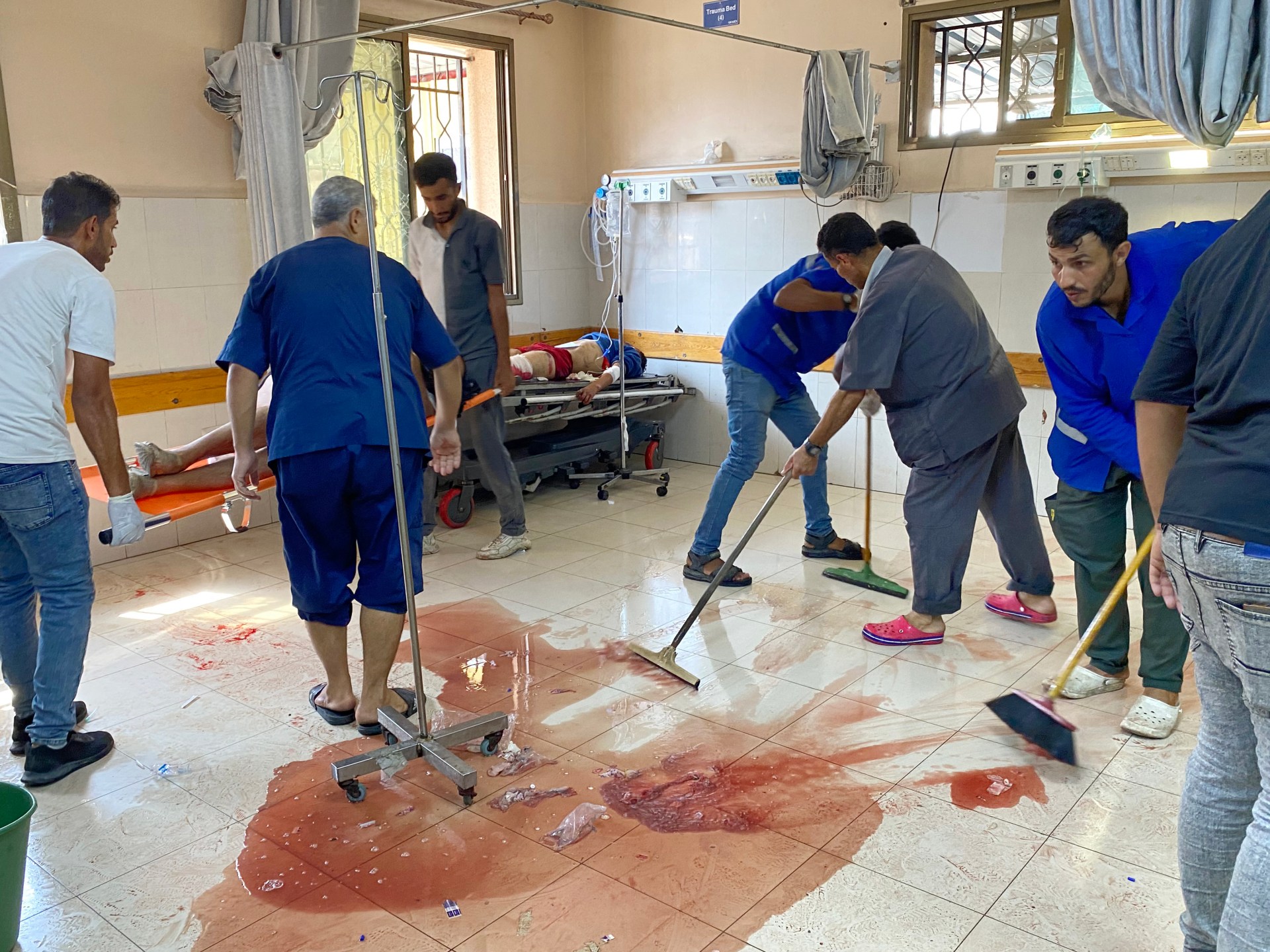I live near Nasser Hospital in the west of Khan Younis city. Almost every day, I hear desperate calls for blood donations made on loudspeakers out of the hospital. It has been like that for more than a year.
The hospital, like other barely functioning health facilities in Gaza, has been regularly overwhelmed with victims of continuing Israeli air attacks. Since the end of May, it has also received many victims shot by Israeli soldiers at aid distribution sites.
I had donated blood before, and I felt it was my duty to do it again. So one morning last month, I headed to Nasser Hospital.
While the blood was being drawn from my arm, I felt severe dizziness, and I thought I was going to faint. My friend, Nurse Hanan, who was one of the workers in the blood donation campaign, rushed to me and raised my legs to increase the blood flow to my brain until I felt better. She went to test my blood, and after 10 minutes returned to tell me that I was suffering from severe anaemia and malnutrition. My blood did not contain the minimum nutrients necessary for donation.
Hanan told me that my case was not an exception. She explained that most of the people who visited the hospital to donate blood suffer from anaemia and malnutrition as a result of the ongoing Israeli blockade and the absence of nutritious food, such as meat, milk, eggs and fruits. Two-thirds of the blood units donated at the hospital have extremely low haemoglobin and iron levels, which makes them unusable for blood transfusions.
In early June, Dr Sofia Za’arab, director of the Laboratory and Blood Bank, told the media that the severe shortage of donated blood units has reached “critical” levels, threatening the lives of patients, many of whom require urgent blood transfusions. The whole of Gaza needs 400 units daily.
“Despite contacting the Ministry of Health in the West Bank to transfer blood units, the occupation authorities prevented their entry [into Gaza],” Dr Za’arab said.
After the failed blood donation, I returned home crushed.
I knew the famine was affecting me. I have lost a lot of weight. I suffer from constant fatigue, chronic joint pain, headaches, and dizziness. Even when I write my journalistic articles or study, I need to take short breaks.
But the revelation of how bad my health condition is really struck me.
For months now, my family and I have been eating only pasta and rice, due to the astronomical cost of flour. We eat one meal a day, and sometimes even half a meal to give more food to my younger siblings. I worry about them being malnourished. They have also lost a lot of weight and are constantly asking for food.
We have not seen meat, eggs, or dairy products since Israel imposed the full blockade on March 2, and, even before that, we rarely did.
The Gaza health authorities have said at least 66 children have died from starvation since the start of the Israeli genocidal war. According to UNICEF, more than 5,000 children were admitted to health facilities across the Strip for treatment of acute malnutrition in May, alone.
Even if some of these children are miraculously saved, they will not have the opportunity to grow up healthy, to develop their full potential, and enjoy stable, secure lives.
But beyond the anxiety I felt about the toll starvation has taken on my body and on bodies of my family members, I also felt pain because I had failed to help the wounded.
I wanted to help those who are suffering from war injuries and fighting for their lives in the hospital because I am a human being.
After all, the urge to help another person is one of the most human instincts we have. Solidarity is what defines our humanity.
When you want to save a life but are prevented from doing it, it means a whole new horizon of despair has opened. When you want to help with whatever little you have – in this case, part of yourself – but are denied, this leaves a deep scar on the soul.
For 21 months now, we have been denied all our human rights inscribed in international law: The right to water and food, the right to healthcare and housing, the right to education, the right to free movement and asylum, the right to life.
Now, we have reached a point where even the urge to save others’ lives, the right to show human solidarity, is being denied to us.
All this is not by chance, but by design. The genocide is not only killing people; it is also targeting people’s humanity and solidarity. From charities and food kitchens being bombed, to people being encouraged to carry knives and form gangs to rob and steal food, the strong solidarity that has kept the Palestinian people going through this genocide – through 75 years of suffering and dispossession – is directly under attack.
Cracks may be appearing in our communal bonds, but we shall repair them. We are one big family in Gaza, and we know how to heal and support each other. The humanity of the Palestinian people has always stood victorious.
Source: Aljazeera

Leave a Reply